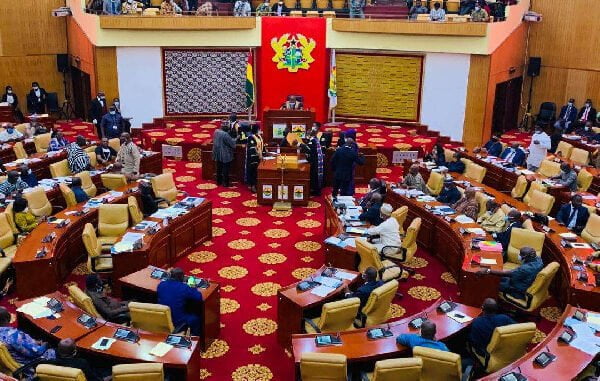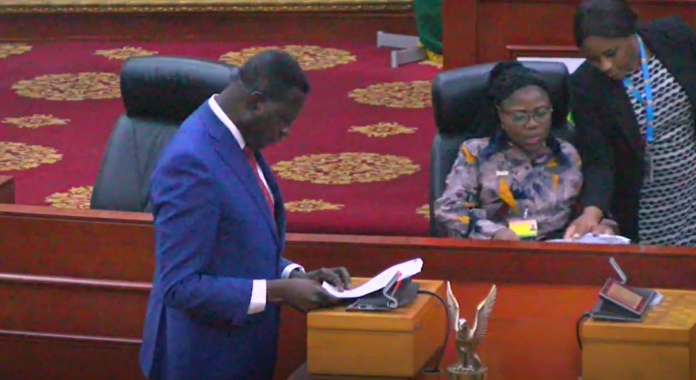Minority Issues Strong Statement On Government’s Decision To Ban Importation Of Used Electrical Appliances

John Jinapor, the ranking member of the Mines and Energy Committee of Parliament, has pleaded with the government to immediately review its “tough” policy of forbidding the importation of any used electrical appliances.
He claims that if this policy is not changed, it will not only cause the vast majority of those who deal in these appliances to lose their jobs, but it will also have severe economic ramifications for the already struggling Ghanaian consumer because so many people rely heavily on these appliances.
He emphasized that it was extremely regrettable and appalling that the Legislative Instrument (LI) was rushed through Parliament without sufficient consultation or extensive engagement with the various stakeholders.
It is critical to remind the Energy Commission that best practices call for extensive consultations, particularly with the Mines and Energy Committee of Parliament, in order to get their opinions and input on such a crucial LI before implementation.
The lack of a grace period or transition period prior to the implementation of this policy is even more troubling. According to the former deputy energy minister, “it is only proper that some sort of transition period be allowed for such a policy that has far-reaching consequences, to enable traders and consumers ample time to adjust to the policy, especially at this time when the uncertainties in the Ghanaian economy abound.
The decision by the Ghanaian government, acting through the Energy Commission, to prohibit the importation of all used electrical appliances into the country is regrettable and must be reconsidered immediately.
If this policy is not revised, it will not only result in the unemployment of the vast majority of those who trade in these appliances, but it will also have severe economic consequences for Ghana’s already impoverished consumers, as many rely heavily on these appliances.
The unfortunate and appalling manner in which the Legislative Instrument (LI) was rushed through Parliament without adequate consultation and extensive engagement with the various stakeholders.
It is critical to remind the Energy Commission that best practices will necessitate extensive consultations, particularly with Parliament’s Mines and Energy Committee, to solicit their views and input on such an important LI before implementation.
Even more troubling is the absence of a grace period or transition period prior to the implementation of this policy. For a policy with such far-reaching consequences, it is only proper that some transition period be allowed to allow traders and consumers ample time to adjust to the policy, especially at this time when the Ghanaian economy is rife with uncertainties.
It should be noted that depending on the make, brand, and standards, some of these used electrical appliances may be more energy efficient and durable than new ones.
READ ALSO: GOOD NEWS: Three Months Evaluation Forms For National Service Personnel Released
Send Stories | Social Media | Disclaimer
Send Stories and Articles for publication to [email protected]
We Are Active On Social Media
WhatsApp Channel: JOIN HERE
2024 BECE and WASSCE Channel - JOIN HERE
Facebook: JOIN HERE
Telegram: JOIN HERE
Twitter: FOLLOW US HERE
Instagram: FOLLOW US HERE
Disclaimer:
The information contained in this post on Ghana Education News is for general information purposes only. While we endeavour to keep the information up to date and correct, we make no representations or warranties of any kind, express or implied, about the completeness, accuracy, reliability, suitability or availability with respect to the website or the information, products, services, or related graphics contained on the post for any purpose.



 Profile Of Kwabena Boateng, Ejisu MP Elect
Profile Of Kwabena Boateng, Ejisu MP Elect  KNUST student honoured at International Sports Media Awards (AIPS)
KNUST student honoured at International Sports Media Awards (AIPS)  GNAPS calls for urgent subsidy of BECE charges for private schools
GNAPS calls for urgent subsidy of BECE charges for private schools  How to Create Good Study Habits for Exams
How to Create Good Study Habits for Exams  How to Help Your Child Prepare for Exams
How to Help Your Child Prepare for Exams  GES To Query 42 Teachers In The Upper West Region; Here’s Why
GES To Query 42 Teachers In The Upper West Region; Here’s Why